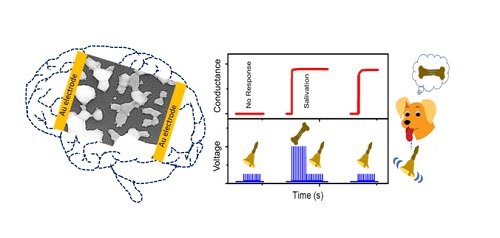JNCASR develops artificial synaptic network that mimics human brain
June 01, 2021 | Tuesday | News
Scientists explored a material system mimicking neuronal bodies and axonal network connectivity much like the biological system
Image Credit: PIB
Scientists have fabricated a device that can mimic human brain cognitive actions and is more efficient than conventional techniques in emulating artificial intelligence, thus enhancing the computational speed and power consumption efficiency.
Scientists from Jawaharlal Nehru Centre for Advanced Scientific Research, Bengaluru, an autonomous institute of the Department of Science & Technology, Government of India, devised a novel approach of fabricating an artificial synaptic network (ASN) resembling the biological neural network via a simple self-forming method (the device structure is formed by itself while heating). This work has been recently published in the journal Materials Horizons.
Aiming to develop a synaptic device for neuromorphic applications with a humble fabrication method, the JNCASR team explored a material system mimicking neuronal bodies and axonal network connectivity much like the biological system. To realise such a structure, they found that a self-forming process was easy, scalable, and cost-effective.
In their research JNCASR team dewetted Silver (Ag) metal to form branched islands and nanoparticles with nanogap separations to resemble bio neurons and neurotransmitters where dewetting is a process of rupture of continuous film into disconnected/isolated islands or spherical particles.
A prototyping kit has been developed to emulate Pavlov’s dog behaviour which demonstrates the potential of this device towards neuromorphic artificial intelligence. By organising a nanomaterial resembling the biological neural substance, the JNCASR team has moved a step further in accomplishing advanced neuromorphic artificial intelligence.









